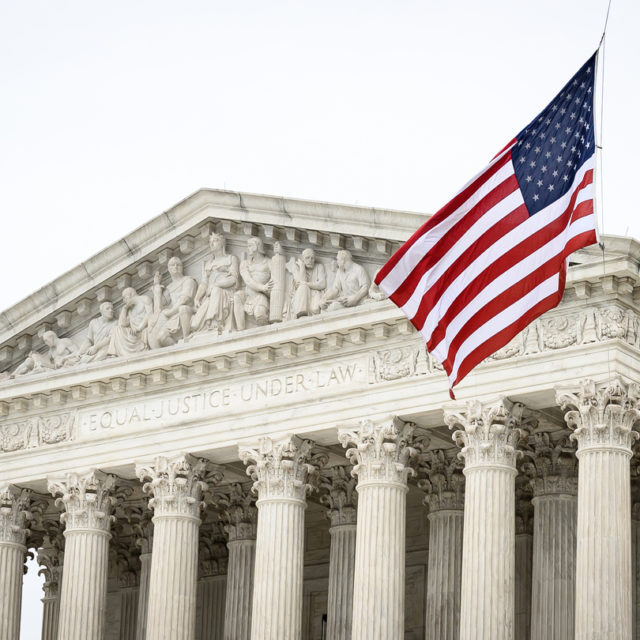Insights < BACK TO ALL INSIGHTS
Did the Supreme Court Just Clear the Way for Student Athletes to Promote Sports Betting?
Did the Supreme Court Just Clear the Way for Student Athletes to Promote Sports Betting?
By: Sara Dalsheim
The Supreme Court’s recent ruling in NCAA v. Alston, et al. could be the catalyst that transforms the NCAA’s student athlete regulation of the benefits/compensation provided to college athletes. The Court, in a decision written by Justice Neil Gorsuch, upheld the lower courts’ ruling that the NCAA violates antitrust laws by placing limits on the education-related benefits schools can offer to their athletes. Colleges and universities may now provide athletes with unlimited compensation so long as it is connected in some way to their education. However, the Court’s decision reaffirmed the NCAA’s authority to adopt reasonable rules and repeatedly noted that the NCAA remains free to articulate what are truly education benefits. The decision did not address, and leaves open the issue of other types of student athlete compensation, such as whether the athletes may receive compensation as “influencers” or product endorsers of commercial products and services.
The NCAA is a multi-billion-dollar business that provides little to no forms of compensation for its key constituents (i.e., the athletes). Previously, athletes could only receive compensation in the form of tuition and fees, room and board, books and other expenses related to the costs of university attendance. The athletes challenged this restriction, and won, on the basis that schools act as cartels in limiting how much each can pay by requiring NCAA caps on academic-related compensation of athletes. Now, schools are permitted to provide athletes unlimited non-cash “education-related benefits” including post-eligibility internships, in addition to annual payments up to $6,000 if they maintain academic eligibility.
The ruling repudiated the long-standing NCAA contention that it is owed favorable treatment under federal antitrust law. However, the Court did not expand further on what types of compensation/benefits should be awarded to athletes. Known college basketball fan, Justice Kavanaugh, in his concurrence welcomed and encouraged college athletes to bring more cases in front of the Court, stating that, “[t]he NCAA is not above the law … [and] the NCAA’s business model would be flatly illegal in almost any other industry in America.” The concurrence suggested that the NCAA’s rules inhibiting any sort of compensation, including direct payment for athlete accomplishments, may no longer hold up if there are forthcoming antitrust challenges.
The Supreme Court decision opens up multiple avenues for college athletes. First, now that athletes are permitted to receive wider education benefits, it shifts some power during the recruitment process. Students may be able to negotiate with potential universities and be better able to pursue a meaningful career path focused on their post-collegiate interests rather than strictly on training and play.
Secondly, as Justice Kavanaugh hinted, the Court may expand benefits and rights of college athletes; stating that, “the NCAA’s remaining compensation rules also raise serious questions under the antitrust laws.” Since the most likely challenge would have been whether athletes may use their name, image, and likeness to act as influencers and/or promoters of products and services the NCAA saw the writing on the wall. In the hope of avoiding subsequent litigation on this topic, the NCAA Division I Council suggested a plan on June 28, 2021, allowing schools in states that have passed laws related to name, image, and likeness to be responsible for determining whether athletes name, image, and likeness activities “are consistent with state law.” The NCAA divisions voted to approve the policy on June 30, 2021. The new policy permits athletes to engage in name, image, and likeness activities without violating NCAA’s amateurism rules. Ten states have passed laws or issued executive orders allowing athletes to make money off their name, image, and likeness; and more than fifteen states could implement similar rules by September 1st of this year. The athletes within those states must adhere to the specific state rules. For states without name, image, and likeness laws, athletes would also be able to engage in name, image, and likeness activities without violating NCAA rules. Although, for these athletes, the colleges and universities will decide whether certain activities are permissible.
The mixture of state laws and individual school policies will create an inconsistent array of restrictions depending on where an athlete attends school. In some states, the laws say athletes cannot endorse alcohol, tobacco, or gambling products/services. The NCAA has not released its own set of name, image, and likeness restrictions due to fears of antitrust violations. The NCAA hopes Congress will pass a federal law creating a consistent set of standards for college athletes. Thus, it is probable that within the near future athletes would be subject to a single set of reasonable rules and restrictions. For example, the NCAA strongly disfavors any ties to sports betting; therefore, the NCAA would strongly suggest that the law declared by Congress prohibit their athletes from using their name, image, and likeness to promote any sort of sportsbook. This restriction could face legal challenges, with the NCAA likely asserting integrity and health and safety of the athletes (one of the NCAA’s missions) to justify a restriction. For now, whether college athletes may promote sports betting activities is left to the state they play in or school they attend.
The Supreme Court suggested that the NCAA would not fare well on antitrust challenges and may be looking to grant college athletes the benefits/compensation to which they may be entitled as the primary commodity of the NCAA’s multi-billion-dollar product. It is evident that this will not be the last NCAA-related decision we see in front of the Court since the Court indicated it is ready to reshape the way the NCAA regulates athletics.





